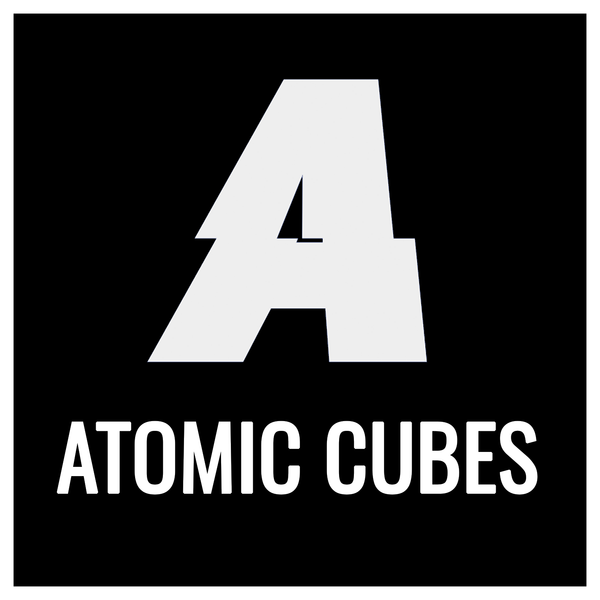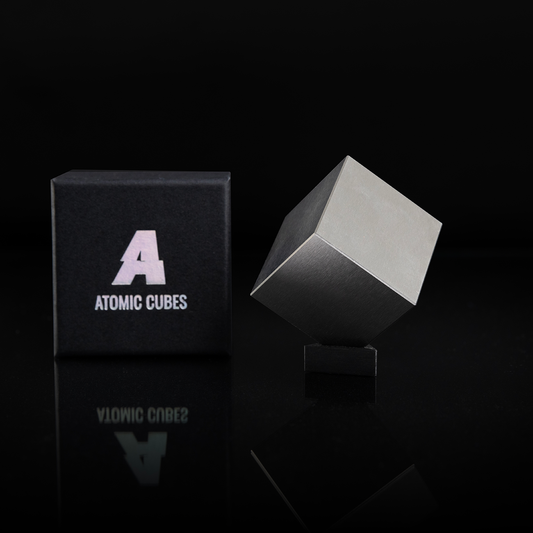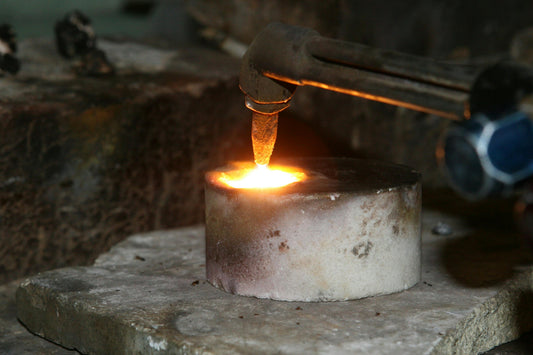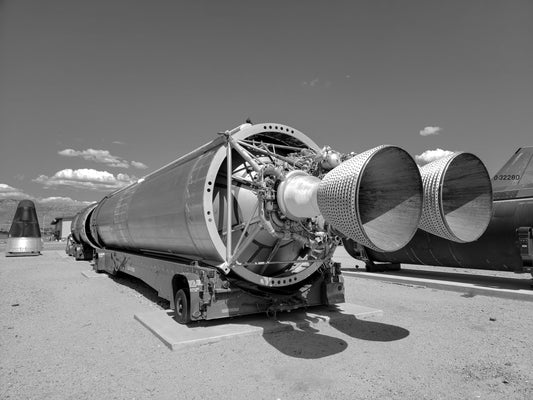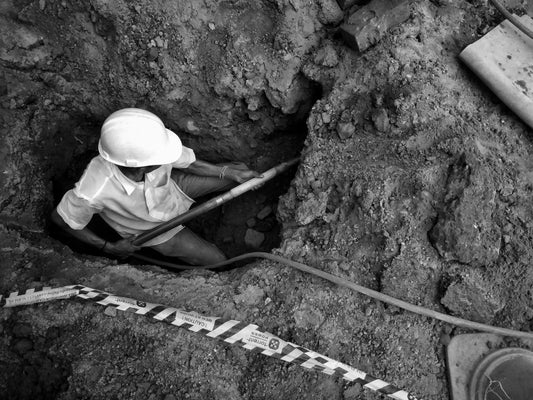This blog delves into the distinct properties of tungsten, highlighting what makes it stand out compared to other metals. We’ll focus on its melting point, elasticity, density, radiation shielding, and corrosion resistance.
Tungsten has the highest melting point of all metals
Exceptional Heat Resistance
Tungsten has the highest melting point of all metals at 3422°C (6192°F). This means it can withstand extremely high temperatures without melting, making it a perfect fit for applications involving intense heat, like light bulb filaments and high-temperature industrial processes.

Image of a tungsten light bulb filament burning to produce light
How much heat can tungsten really withstand?
In engineering, tungsten's high melting point means it can keep its shape and function in extremely hot environments. This makes it suitable for use in rocket nozzles and furnace components. If you’re not familiar with the anatomy of a rocket ship - a rocket nozzle is quite literally the tube at the bottom of a rocket, in which ignited rocket fuel exits the ship!

Image of the Titan IVB rocket, with two tungsten coated nozzles in the rocket engine
Tungsten's strength & elasticity means it can cut gems and carve stones
Mechanical Properties
Tungsten is incredibly strong and elastic, with a tensile strength of about 1510 MPa and a Young's modulus of around 411 GPa. These properties mean tungsten can endure significant stress and strain without breaking or deforming.
How much stress can tungsten really withstand?
Tungsten is incredibly tough! Its durability makes it perfect for use in cutting tools where it is most commonly found in jewellery making and stone carving workshops. Imagine trying to slice through precious stones or rock—regular metals will quickly wear out, but not tungsten! Its strength ensures long-lasting performance, making it the top choice for powerful tasks. Whether you're cutting, drilling, or shaping, tungsten handles the job with ease, outlasting and outperforming other metals.

Image of a tungsten ring, it is highly resistant to scratches, oxidation or corrosion, more so than any other metal jewellery
Tungsten’s extreme density is commonly utilised in aerospace and military industries
Density Comparison
Tungsten is one of the densest elements, with a density of 19.3 grams per cubic centimetre. This makes it about 1.7 times denser than lead and nearly as dense as gold.
Practical Applications
Tungsten is incredibly dense, making it perfect for packing a lot of weight into a small size. In fact, It's nearly 10 times denser than aluminium! For example, in aerospace, tungsten weights can be 5 times smaller than steel weights and still balance aircraft. In the military, tiny tungsten projectiles are powerful due to their high mass. Even in sports, tungsten weights in golf clubs add heft without bulk, improving performance. This makes tungsten ideal for any field where you need a lot of weight in a small package!

Image of golf clubs made from tungsten to add heft and minimise bulk
Tungsten is one of the most radiation proof materials on planet earth
Absorption of Radiation
Tungsten's high atomic number and density make it excellent at absorbing radiation, including X-rays and gamma rays.
How much radiation can tungsten take compared to other materials?
Tungsten is ideal for shielding against radiation because it's 1.7 times denser than lead, providing superior protection in a smaller size. It’s used in medical settings to protect patients and staff and in nuclear plants and radiography to shield equipment and workers with less bulk.
Tungsten is 10 times more resistant to corrosion than gold
High Chemical Stability
Tungsten is highly resistant to corrosion from acids and bases, making it chemically stable and long-lasting in harsh environments.
So how corrosion resistant really is tungsten?
Tungsten is crucial in chemical processing equipment. It's about 10 times more resistant to chemical damage than gold, making it ideal for tough chemical processing environments. Unlike gold, which can degrade with harsh substances, tungsten stays strong and reliable, keeping equipment safe and effective.
Other Unique Properties
Electrical Conductivity
Tungsten has good electrical conductivity, especially at high temperatures, making it useful in electrical applications requiring durability under heat.
Thermal Conductivity
Tungsten's high thermal conductivity allows it to effectively dissipate heat, beneficial in electronics where heat management is crucial.
Hardness and Wear Resistance
With a Mohs hardness of 7.5, tungsten is very hard and resistant to wear and abrasion, enhancing its suitability for cutting tools and other high-durability applications.

Image of a tungsten drill head which can effortlessly cut through the hardest materials whilst maintaining durability
Beyond High-Tech and Aerospace
Tungsten’s exceptional properties make it perfect for a wide range of applications beyond aerospace and tech. While its rarity does make it pricey, it’s still accessible enough to feature in the average home. At Atomic Cubes, we harness tungsten’s unique qualities to create precision-engineered cubes that highlight its remarkable strength and durability. Discover the power of tungsten in our expertly crafted cubes ranging from 0.5 to 3 inches, including our most popular 1 inch and 1.5 inch cubes. See how this incredible material can become your newest addition!
